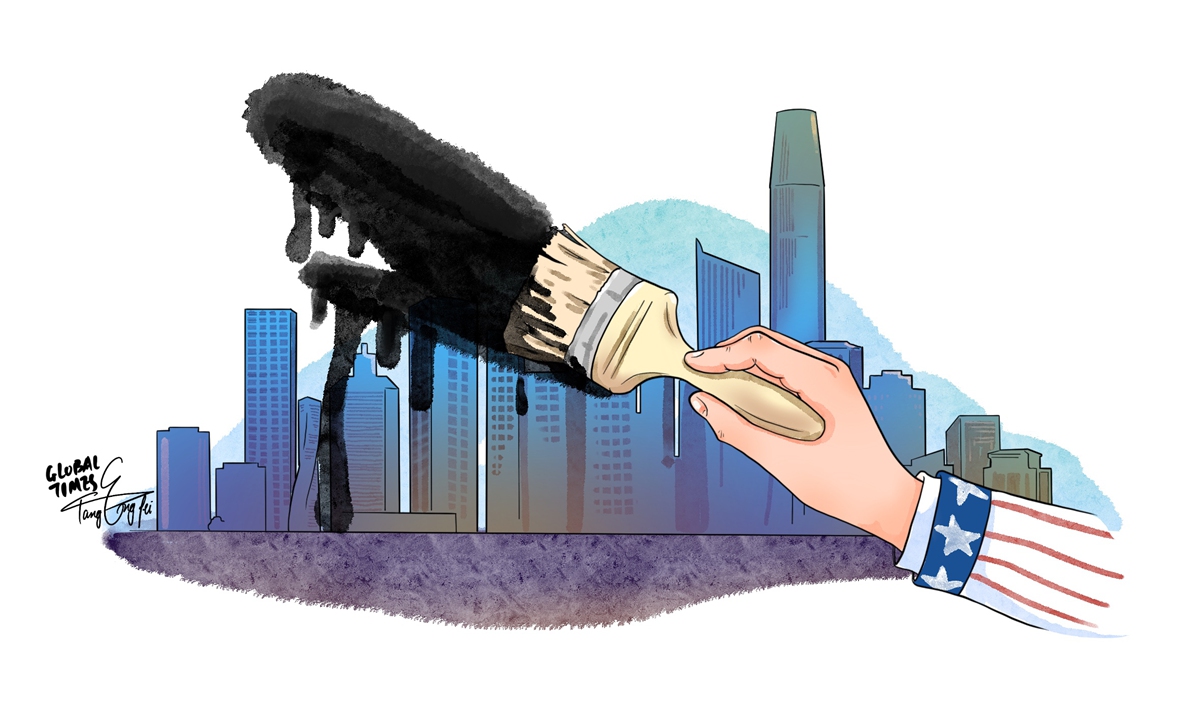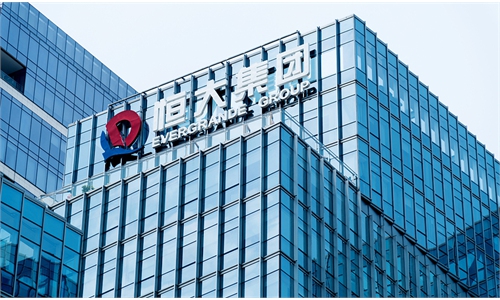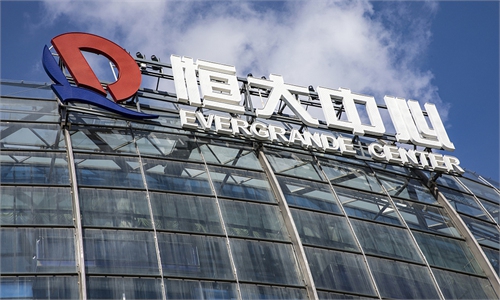COMMENTS / EXPERT ASSESSMENT
Evergrande liquidity crunch is closely managed, no need to play it up

Illustration: Tang Tengfei/Global Times
The US Federal Reserve has just released its bi-annual financial stability report, in which it picked up "stresses in China's real estate sector which could strain the Chinese financial system, with possible spillovers to the US," rendering it an economic threat for US.The report singled out China Evergrande Group as an example of the potential risks, and it is not the first time for the US to hype up "crises" about China's housing market, from American politicians to financial magnates, trying to portray it as China's "Lehman Moment."
As the world's biggest real estate company, there's no denying that Evergrande, which recently found itself plunged into a liquidity crisis, would produce some negative impact, if its liquidity trouble could not be eased in time. But now Evergrande has found its way out. Much of the risk has already been triaged and eased. It won't turn into a "Lehman Moment."
One of the direct reasons behind this round of real estate-related liquidity trouble in China is that tightened market regulation caused liquidity supply reduction by the lenders. China has long been committed to regulating the unchecked growth of the housing market, built on the principle of "housing is for living in, not for speculation."
By regulating the real estate market, China is trading long-term interests off short-term benefits and managing the sector's risks, to prevent the risks from developing and impact the country's financial system, and China has rolled out a series of administrative and monetary measures to address housing risks.
There's no financial market in the world that is free of market fluctuations, and global capital flows offer a better answer for the market's outlook for China's future development. By the end of October, foreign investors' holdings of yuan-denominated bonds stood at 3.85 trillion yuan ($603 billion), which is nearing the 4 trillion yuan milestone, the Shanghai Securities News reported.
International investors held 7.5 trillion yuan of equities and other assets priced in yuan as of the end of September, up about 760 billion yuan from the end of 2020, according to calculations by the Financial Times.
More than 50 percent of total capital inflows to emerging markets in October went to China, according to data from the Institute of International Finance. The enthusiasm in Chinese assets seen by global investors has demonstrated their confidence in the Chinese economy and Chinese governments' governance.
Moreover, the real elephant in the room is actually the US' own problems, rather than Evergrande or China's real estate sector. The US Federal Reserve's balance sheet has topped $8 trillion, nearly doubled that since it kicked off large-scale bonds purchases in early 2020 when the COVID-19 epidemic emerged in the US.
After endless rounds of stimulus during the pandemic onslaught, US national debt is nearing $29 trillion now, equivalent to 716 percent of the US' total federal revenue in the fiscal year. And the US stock market has diverged far from its real economy, adding with other market factors, a significant correction may be waiting in the corner.
Although this is not to say that the US economy is going to fall apart, and a 2008-style financial system crisis is not necessarily imminent, the world still needs to be fully alert over possible large fluctuations in the US financial market as it still plays the leading role in the global financial system.
US President Joe Biden has been claiming that "the US is back" to the world stage, and maybe the US should come back with its financial risks properly managed beforehand, and inject the positive into global markets, otherwise, the world may not buy what Biden is selling.
The author is the adjunct fellow at the Center for International Security and Strategy, Tsinghua University, China Forum expert, and a senior research fellow at the International Institute of China Construction Bank. bizopinion@glboaltimes.com.cn


